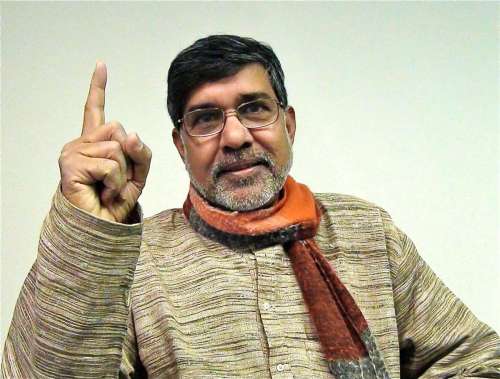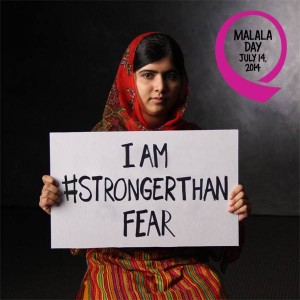
 Indian child rights activist Kailash Satyarthi shared the Nobel Peace Prize with Pakistani teenager Malala Yousufzai who stood up to the Taliban and survived a near-fatal shooting.
Indian child rights activist Kailash Satyarthi shared the Nobel Peace Prize with Pakistani teenager Malala Yousufzai who stood up to the Taliban and survived a near-fatal shooting.
The Norwegian Nobel Committee awarded the Peace Prize for 2014 to Satyarthi and Malala Yousufzai “for their struggle against the suppression of children and young people and for the right of all children to education,” a statement said.
Showing great personal courage, 60-year-old Kailash Satyarthi, “maintaining Gandhi’s tradition, has headed various forms of protests and demonstrations, all peaceful, focusing on the grave exploitation of children for financial gain. He has also contributed to the development of important international conventions on children’s rights”.
Satyarthi runs the Bachpan Bachao Andolan NGO that works for child rights, specially bonded labour.
Prime Minister Narendra Modi Friday congratulated Indian child rights activist Kailash Satyarthi for winning the Nobel Peace Prize, saying that he devoted his life to a cause “extremely relevant to entire humankind”.
“Congratulations to Kailash Satyarthi on being awarded the Nobel Peace Prize. The entire nation is proud of his momentous achievement,” he said in a tweet.
“Kailash Satyarthi has devoted his life to a cause that is extremely relevant to entire humankind. I salute his determined efforts,” he added.
Modi also congratulated Pakistani girl child education campaigner Malala Yousufzai, saying her “life is a journey of immense grit and courage”.
Despite her youth, the committee said, Malala has “already fought for several years for the right of girls to education, and has shown by example that children and young people, too, can contribute to improving their own situations”.
“This she has done under the most dangerous circumstances. Through her heroic struggle she has become a leading spokesperson for girls’ rights to education,” it added.
Malala was shot by a Taliban gunman as she took a bus home from school in Pakistan’s northwest region in October 2012. She was flown to Britain for specialised treatment shortly after the attack.
The Nobel Committee regards it “as an important point for a Hindu and a Muslim, an Indian and a Pakistani, to join in a common struggle for education and against extremism”.
It highlighted that there are 168 million child labourers around the world today. In 2000 the figure was 78 million higher. The world has come closer to the goal of eliminating child labour.